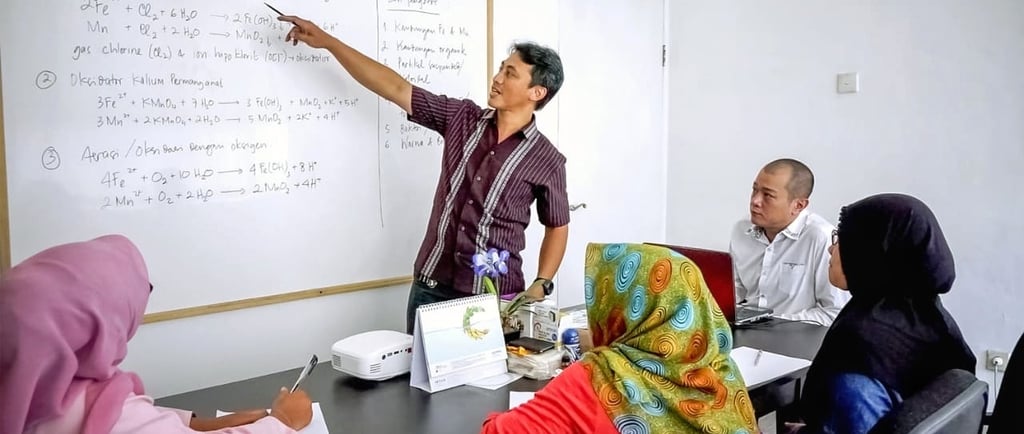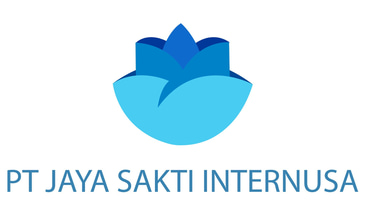Training and Expertise: Building Competence in Water Treatment Management


Managing water resources in industrial operations requires more than just advanced technology—it demands knowledgeable people who are well-trained and competent in handling complex systems. The need for training in water treatment management has grown significantly as industries face stricter environmental regulations, greater sustainability demands, and increasing operational challenges.
While machines and automation can enhance efficiency, human expertise remains at the core of decision-making, troubleshooting, and long-term planning. This article explores the importance of training and expertise in water treatment management, how industries can benefit from investing in competence development, and the role of trusted partners like PT Jaya Sakti Internusa in delivering effective solutions.
Why Competence in Water Treatment Matters
Water treatment is not a one-size-fits-all process. Different industries—from manufacturing and energy to food and pharmaceuticals—require specialized approaches to ensure that water meets quality standards. Mismanagement can lead to costly downtime, regulatory penalties, and environmental harm.
This is where human competence plays a decisive role. Skilled professionals are needed to interpret data, adjust system parameters, and ensure compliance with evolving regulations. According to the U.S. Environmental Protection Agency (EPA), the availability of trained operators and managers directly influences the safety and effectiveness of water systems. Without adequate expertise, even the most sophisticated systems can fail to deliver the expected results.
By investing in workforce training, industries can secure smoother operations, stronger regulatory compliance, and long-term sustainability.
Core Areas of Training in Water Treatment
Training programs in water treatment management cover a wide range of subjects that go beyond basic operation. These include:
System Operation and Maintenance: Understanding how pumps, filters, membranes, and controllers function ensures optimal system performance.
Water Quality Analysis: Professionals learn to test and interpret data related to pH, turbidity, hardness, and contaminants.
Regulatory Compliance: Training ensures operators are aware of local and international standards, reducing the risk of violations.
Safety Protocols: Handling chemicals and managing equipment require strict safety practices to protect workers and the environment.
Sustainability Practices: Modern training also emphasizes water conservation, recycling, and waste reduction as part of corporate responsibility.
Each of these areas builds not only technical skills but also problem-solving abilities, preparing professionals to address unexpected challenges in real-world industrial settings.
The Role of Expertise in Sustainable Operations
Competence in water treatment is not just about operating equipment—it is about understanding the broader implications of water use. Expertise ensures that industries can achieve sustainability goals while maintaining profitability.
For example, experienced operators can identify inefficiencies in cooling towers, suggest recycling opportunities, or detect small leaks before they become costly problems. Skilled managers can also balance production requirements with environmental responsibilities, ensuring compliance with laws and alignment with corporate sustainability goals.
Moreover, expertise enables industries to adapt to technological advances. As digital monitoring, IoT integration, and AI-driven systems become more common, trained professionals are needed to interpret insights and translate them into actionable strategies. Without this human expertise, the potential of new technologies remains underutilized.
Building a Culture of Continuous Learning
Water treatment management is a dynamic field influenced by changes in technology, regulations, and environmental challenges. Therefore, a culture of continuous learning is essential for industries that rely heavily on water.
Organizations that invest in ongoing training create teams that are resilient and adaptable. Regular workshops, certifications, and knowledge-sharing sessions ensure that staff members stay updated with best practices and new developments.
This culture not only strengthens competence but also boosts employee confidence and motivation. Workers who feel valued through training are more engaged, which directly translates into better system performance and reduced turnover. In the long run, this leads to stronger operational stability and greater business success.
PT Jaya Sakti Internusa: Partner in Training and Solutions
In Indonesia, PT Jaya Sakti Internusa stands out as a trusted partner for industries seeking both water treatment solutions and expertise development. The company not only provides cutting-edge technologies but also emphasizes the importance of skilled human resources to ensure that systems perform at their best.
By offering tailored support, PT Jaya Sakti Internusa helps clients develop competence in managing their unique water treatment requirements. Their approach combines technical solutions with practical guidance, enabling industries to achieve compliance, efficiency, and sustainability simultaneously.
This dual focus on technology and training makes the company a valuable ally for businesses aiming to future-proof their water management strategies.
Overcoming Challenges in Workforce Development
While the importance of training is clear, many industries face challenges in implementing effective programs. High turnover rates, limited budgets, and competing operational priorities can hinder workforce development. Additionally, rapid technological advances require constant updates, which may overwhelm smaller teams.
However, these challenges can be mitigated through strategic planning. Partnering with trusted solution providers, prioritizing critical training areas, and leveraging digital learning platforms can help industries maintain competence while controlling costs. In fact, forward-thinking companies see training not as an expense but as a long-term investment in operational resilience and sustainability.
When industries prioritize expertise development, they position themselves to thrive even in competitive and regulated markets.
The Future of Training in Water Treatment
The future of water treatment management will be shaped by advanced technologies such as AI, machine learning, and real-time monitoring. As systems become more intelligent, the role of human operators will evolve from manual tasks to data interpretation and strategic oversight.
This means training will need to adapt as well. Future programs will focus more on digital literacy, analytical skills, and integrated system management. Rather than replacing human expertise, technology will enhance it, making training even more critical for success.
Additionally, as sustainability goals become global priorities, industries will require professionals who not only understand technical operations but also the environmental and social implications of water management. Training will therefore expand to include corporate responsibility and resource stewardship, ensuring holistic competence in the field.
Conclusion
Competence in water treatment management is the cornerstone of industrial efficiency, compliance, and sustainability. While advanced technologies provide powerful tools, it is the training and expertise of people that determine how effectively these tools are used.
By prioritizing training in water treatment management, industries can build skilled teams that ensure smooth operations, meet regulatory standards, and contribute to environmental responsibility. Companies like PT Jaya Sakti Internusa demonstrate the value of integrating solutions with expertise development, helping businesses achieve long-term success.
In an era where water is both a vital resource and a global challenge, investing in training is not just a business necessity—it is a commitment to sustainability, innovation, and future resilience.
